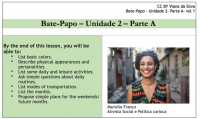 ‘openness’ means listening to the language of a given community and the commitment to reproduce it in a textbook format. Inclusion of minority groups in the textbook is perceived not as ‘curiosities’, but as an integral part of the cultures being represented so that a wider range of communities and language registers (from formal to informal) is portrayed. In addition, openness applies to the articulation of gender narratives in an inclusionary format. For instance, the masculine gender is supplemented with female and other non-binary genders.
‘openness’ means listening to the language of a given community and the commitment to reproduce it in a textbook format. Inclusion of minority groups in the textbook is perceived not as ‘curiosities’, but as an integral part of the cultures being represented so that a wider range of communities and language registers (from formal to informal) is portrayed. In addition, openness applies to the articulation of gender narratives in an inclusionary format. For instance, the masculine gender is supplemented with female and other non-binary genders.
To read
23.08.2019 | by Carlos Pio and Eduardo Viana da Silva
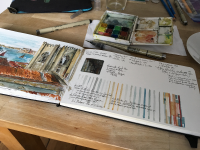 This space, therefore, has huge symbolic significance as a place to host an exhibition about contemporary prisons, and it matters that the two distinct narratives are not confounded. The Portuguese Prison Photo Project invites its viewers to consider the work of two photographers on regular prisons in Democratic Portugal of the 21st century, accompanied by other photographs of prisons selected from diverse national archives.
This space, therefore, has huge symbolic significance as a place to host an exhibition about contemporary prisons, and it matters that the two distinct narratives are not confounded. The Portuguese Prison Photo Project invites its viewers to consider the work of two photographers on regular prisons in Democratic Portugal of the 21st century, accompanied by other photographs of prisons selected from diverse national archives.
I'll visit
19.08.2019 | by Fátima da Cruz Rodrigues
 "This isn't the type of thing you want to talk about" she starts, not really interested in sharing the details, but everyone would point to her door whenever a traveler or a stranger showed up in town.
"I'd take them in and feed them. Prepare their beds and listen to their sufferings. Then they would leave" says Grandma Cane.
"This isn't the type of thing you want to talk about" she starts, not really interested in sharing the details, but everyone would point to her door whenever a traveler or a stranger showed up in town.
"I'd take them in and feed them. Prepare their beds and listen to their sufferings. Then they would leave" says Grandma Cane.
Face to face
14.08.2019 | by Sinem Taş
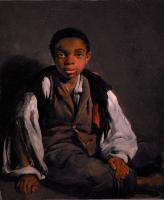 Continuing to insist on a colour-blind policy, ignoring the voices of Invisible Portuguese, will only maintain the ‘specific and extremely dangerous delusion made possible by the wilful forgetting, and negating, of Europe’s imperial past.
Continuing to insist on a colour-blind policy, ignoring the voices of Invisible Portuguese, will only maintain the ‘specific and extremely dangerous delusion made possible by the wilful forgetting, and negating, of Europe’s imperial past.
To read
29.07.2019 | by Hélia Santos
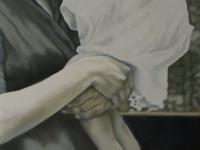 Some of these stories also show that such ‘returns’ to Angola by people of Nuno’s generation may actually be critical detours, when they give rise, upon returning to Portugal, to critical postures on the colonial persistence within Portuguese society. In this European context, could the Portuguese case represent an alternative: something that, through a post-colonial journey, may lead to a more egalitarian society that accepts a plural public retelling of the past?
Some of these stories also show that such ‘returns’ to Angola by people of Nuno’s generation may actually be critical detours, when they give rise, upon returning to Portugal, to critical postures on the colonial persistence within Portuguese society. In this European context, could the Portuguese case represent an alternative: something that, through a post-colonial journey, may lead to a more egalitarian society that accepts a plural public retelling of the past?
To read
29.07.2019 | by Irène dos Santos
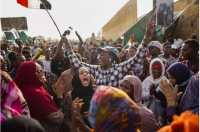 the so-called “international community”, which dedicated to the events in Sudan not even one-tenth of the attention given to the Venezuelan or Algerian crises, was awakened by the rumble of the fall of the dictator of Khartoum. It was as if Western, Arab and African governments understood suddenly that a democratic revolution in Sudan may have devastating effects on the stability of neighbouring countries and on the regional balance of power, entailing feverish political and diplomatic agitation.
the so-called “international community”, which dedicated to the events in Sudan not even one-tenth of the attention given to the Venezuelan or Algerian crises, was awakened by the rumble of the fall of the dictator of Khartoum. It was as if Western, Arab and African governments understood suddenly that a democratic revolution in Sudan may have devastating effects on the stability of neighbouring countries and on the regional balance of power, entailing feverish political and diplomatic agitation.
Games Without Borders
15.07.2019 | by Nicole Guardiola
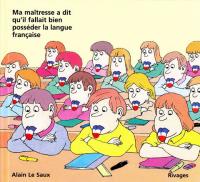 Reflecting on glotophobia also allows us to question the linguistic and cultural imaginaries of a
post-colonial or decolonial perspective. We must rethink, again, discourses that rely on a political or
ideological territorialisation sustained by references to the purity of origin, of language, of religion, or of
ideological dogma.
Reflecting on glotophobia also allows us to question the linguistic and cultural imaginaries of a
post-colonial or decolonial perspective. We must rethink, again, discourses that rely on a political or
ideological territorialisation sustained by references to the purity of origin, of language, of religion, or of
ideological dogma.
To read
13.07.2019 | by Graça dos Santos
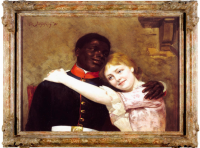 The authors were confronted with the lack of information on the representation of black men and women in European painting, which led them to very direct and immediate questions: who were the people represented? What were the motivations for representing them? And why did black people in European painting rarely have individualized identities?
The authors were confronted with the lack of information on the representation of black men and women in European painting, which led them to very direct and immediate questions: who were the people represented? What were the motivations for representing them? And why did black people in European painting rarely have individualized identities?
To read
10.07.2019 | by Ana Paula Rebelo Correia
 What remains of the Hotel Império, beyond an Asian allegory of Portugal? The clustered ruins of a building evoke the memory of an ancient, faded splendour which survives only in residues. But it is more an aesthetic image than a documented, known fact. Haunted ghosts survive of a house, more imagined than real, that never fully belonged in a Macau now disputing its precarious future through an iniquitous debate with a crushing and soulless modernization. The ideal conditions, then, to open up space for a pungent and inexorable nostalgia. It is destined to be the only thing to remain.
What remains of the Hotel Império, beyond an Asian allegory of Portugal? The clustered ruins of a building evoke the memory of an ancient, faded splendour which survives only in residues. But it is more an aesthetic image than a documented, known fact. Haunted ghosts survive of a house, more imagined than real, that never fully belonged in a Macau now disputing its precarious future through an iniquitous debate with a crushing and soulless modernization. The ideal conditions, then, to open up space for a pungent and inexorable nostalgia. It is destined to be the only thing to remain.
Afroscreen
09.07.2019 | by Roberto Vecchi
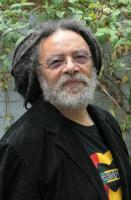 My talk will discuss the altered ecology of belonging that has emerged into Africa’s diasporas during the decades since “Black Atlantic” was published. My discussion of the problems that this has raised will centre on several key themes. They include the fortification of the overdeveloped countries, the impact of new communicative technologies on conceptions of solidarity, relationality and mutuality, the resurgence of extractive capitalism, and the export of generic racial identities from the USA to the whole world.
My talk will discuss the altered ecology of belonging that has emerged into Africa’s diasporas during the decades since “Black Atlantic” was published. My discussion of the problems that this has raised will centre on several key themes. They include the fortification of the overdeveloped countries, the impact of new communicative technologies on conceptions of solidarity, relationality and mutuality, the resurgence of extractive capitalism, and the export of generic racial identities from the USA to the whole world.
I'll visit
08.07.2019 | by vários
 Noting that this subject is now everywhere is to suggest that it has transcended the politico-museological sphere to become part of the public and media space. This is relatively positive, particularly if it is accompanied by actual interventions and insightful debate. Yet the process, which was never going to be straightforward, has become more complex, and acquired new problematics.
Noting that this subject is now everywhere is to suggest that it has transcended the politico-museological sphere to become part of the public and media space. This is relatively positive, particularly if it is accompanied by actual interventions and insightful debate. Yet the process, which was never going to be straightforward, has become more complex, and acquired new problematics.
To read
08.07.2019 | by António Pinto Ribeiro
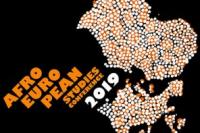 The title of the conference incorporates the tensions, ambiguities and paradoxes of Blackness in Europe. At the same time as black histories, cultures and social conditions are made invisible in hegemonic accounts on Europe, there is a hypervisibility and presence of black stereotyping in European popular culture. Also, while the concept of race has largely disappeared from political, sociological and administrative discourses (in continental Europe), and while the disengagement with institutional and structural racism has been reframed in new capitalist post racial rhetorics, racial markers still have currency, and black bodies continue to be invoked as either tolerated guests at best, or threatening intruders at worst. The consequence is the practice of “embodying an identity that is declared impossible even though lived by millions”, namely as non-white Europeans, and specifically as Black Europeans. This identity has become even more conditioned by a new mainstreaming of right-wing discourses and the tightening immigrant and refugee policies that affect people of African descent.
The title of the conference incorporates the tensions, ambiguities and paradoxes of Blackness in Europe. At the same time as black histories, cultures and social conditions are made invisible in hegemonic accounts on Europe, there is a hypervisibility and presence of black stereotyping in European popular culture. Also, while the concept of race has largely disappeared from political, sociological and administrative discourses (in continental Europe), and while the disengagement with institutional and structural racism has been reframed in new capitalist post racial rhetorics, racial markers still have currency, and black bodies continue to be invoked as either tolerated guests at best, or threatening intruders at worst. The consequence is the practice of “embodying an identity that is declared impossible even though lived by millions”, namely as non-white Europeans, and specifically as Black Europeans. This identity has become even more conditioned by a new mainstreaming of right-wing discourses and the tightening immigrant and refugee policies that affect people of African descent.
I'll visit
24.06.2019 | by vários
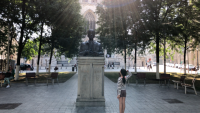 Eurocentric power needs to create narratives about colonial history in order to control interpretations of it. Concepts of law and justice have played an important role in this. Also today, the idea of justice is used to approve violent migratory control policies, including the aggressive persecution, detention, and deportation of persons.
Eurocentric power needs to create narratives about colonial history in order to control interpretations of it. Concepts of law and justice have played an important role in this. Also today, the idea of justice is used to approve violent migratory control policies, including the aggressive persecution, detention, and deportation of persons.
To read
22.06.2019 | by vários
 Why does Europe (still) have such trouble showing a coherent attitude in the face of discourses which legitimate racism and xenophobia? What are the masks that stop it from accepting its colonial past and understanding, once and for all, that diasporas are part of the richness of the European cultural map?
Why does Europe (still) have such trouble showing a coherent attitude in the face of discourses which legitimate racism and xenophobia? What are the masks that stop it from accepting its colonial past and understanding, once and for all, that diasporas are part of the richness of the European cultural map?
To read
22.06.2019 | by Felipe Cammaert
 had brought a dry twig with me from the bushes I hid in for a couple of days. Everytime I hear there is a fire on that island, I just find myself thinking about it... Also brought a couple of snail shells from the same bushes. Why? If the day comes that I forget about it, they would remind me what it is to move forward... even at the speed of a snail..."
had brought a dry twig with me from the bushes I hid in for a couple of days. Everytime I hear there is a fire on that island, I just find myself thinking about it... Also brought a couple of snail shells from the same bushes. Why? If the day comes that I forget about it, they would remind me what it is to move forward... even at the speed of a snail..."
To read
16.06.2019 | by Sinem Taş
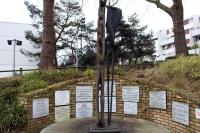 The difficult subject of a politically null war and the traumatic end of the imperial cycle have tended to produce a memory of the colonial war which – though often stressing its “tragic” and “useless” dimension – still emphasizes participation in it as a question of duty. This casts the figure of the veteran as a victim, either of the “winds of history”, or as having been forced to fight.
The difficult subject of a politically null war and the traumatic end of the imperial cycle have tended to produce a memory of the colonial war which – though often stressing its “tragic” and “useless” dimension – still emphasizes participation in it as a question of duty. This casts the figure of the veteran as a victim, either of the “winds of history”, or as having been forced to fight.
To read
16.06.2019 | by Miguel Cardina
 The exhibition Lost Lover speaks about the political, historical and geographical conditions through which knowledge is produced and controlled. The screening program assembled by Lara Koseff was originally presented in Rio de Janeiro, in the courtyard of Lanchonete, now in Rampa, Porto.
In the front room, 11 single-channel video pieces are projected in a loop. The authors, who are mostly from South Africa, confront us with the abandon of fear, thus calling to action topics that are often and strategically silenced.
The exhibition Lost Lover speaks about the political, historical and geographical conditions through which knowledge is produced and controlled. The screening program assembled by Lara Koseff was originally presented in Rio de Janeiro, in the courtyard of Lanchonete, now in Rampa, Porto.
In the front room, 11 single-channel video pieces are projected in a loop. The authors, who are mostly from South Africa, confront us with the abandon of fear, thus calling to action topics that are often and strategically silenced.
I'll visit
12.06.2019 | by Eduarda Neves
 Hartman offers new methodological pistes for literary critics working in archives and shows how literary studies can learn from the wayward lives of women like Esther Brown to expand its understandings of creative practices. Reading Hartman reminds us of the political imperative to interrogate spaces and structures of oppression, confinement and conformism from the perspective – speculative if necessary – of those who resist them.
Hartman offers new methodological pistes for literary critics working in archives and shows how literary studies can learn from the wayward lives of women like Esther Brown to expand its understandings of creative practices. Reading Hartman reminds us of the political imperative to interrogate spaces and structures of oppression, confinement and conformism from the perspective – speculative if necessary – of those who resist them.
To read
04.06.2019 | by Alexandra Reza
 The increasing centrality of the voices of black and Afro-descendent people in Portugal, speaking out against racism and the inequality of opportunity that it generates, is the best guide to how to reconfigure an ancestry that deserves to be revived and reinvented.
The increasing centrality of the voices of black and Afro-descendent people in Portugal, speaking out against racism and the inequality of opportunity that it generates, is the best guide to how to reconfigure an ancestry that deserves to be revived and reinvented.
To read
26.05.2019 | by Bruno Sena Martins
 Os “Congos” foram vários e o “Congoísmo” revelou-se maleável na forma e conteúdo, mas estável na utilidade. Assim sendo, a invocação da sua história e da sua memória só pode ser muito cautelosa. Aspecto importante, requer ainda que se considere a sua história não-europeia, a sua natureza transnacional, transregional e transatlântica, mas também no próprio continente africano. Que não se anule diversidade de actores, instituições, “discursos” e imagens, motivações e interesses.
Os “Congos” foram vários e o “Congoísmo” revelou-se maleável na forma e conteúdo, mas estável na utilidade. Assim sendo, a invocação da sua história e da sua memória só pode ser muito cautelosa. Aspecto importante, requer ainda que se considere a sua história não-europeia, a sua natureza transnacional, transregional e transatlântica, mas também no próprio continente africano. Que não se anule diversidade de actores, instituições, “discursos” e imagens, motivações e interesses.
To read
21.05.2019 | by Miguel Bandeira Jerónimo